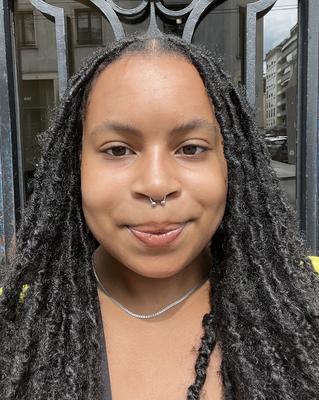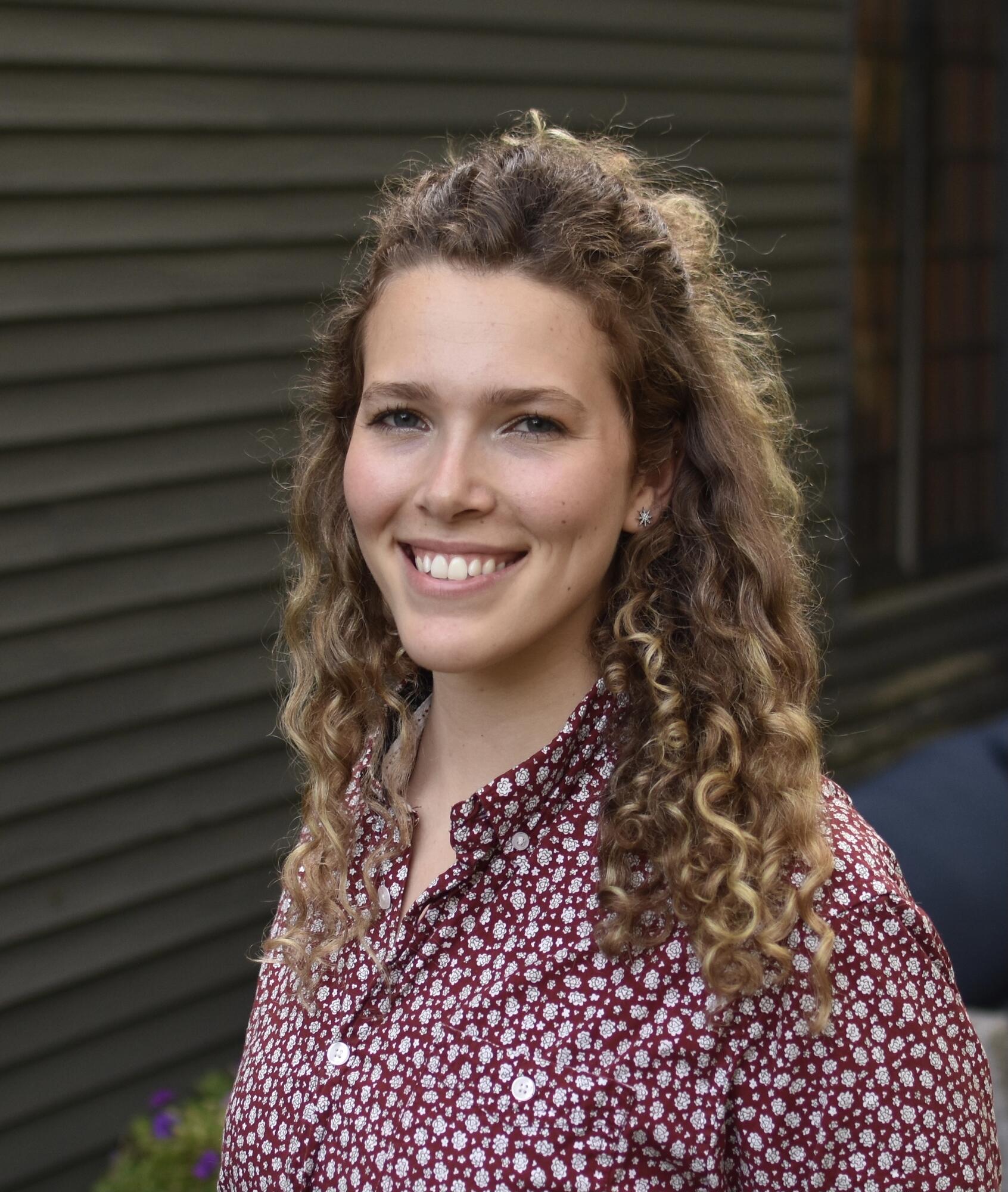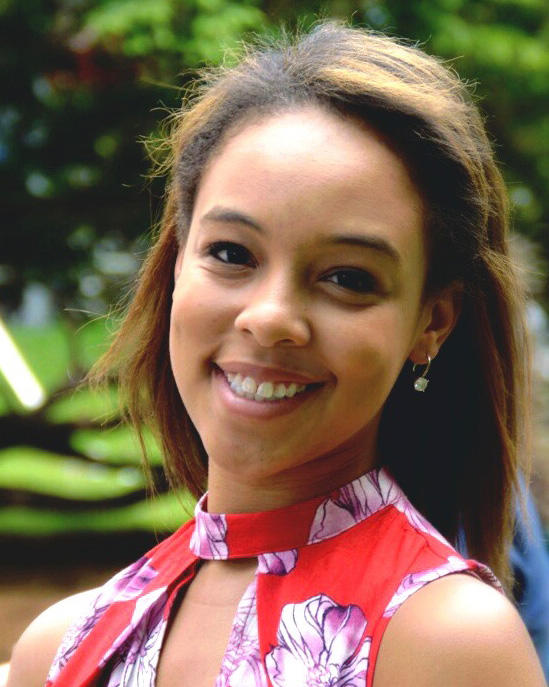Our undergraduates are part of an exciting and stimulating community of scholars who are at the top of their field and doing high-impact research. The Sociology Department offers many opportunities for undergraduates to work on faculty research projects as research assistants. Research assistant positions offer unique possibilities for intellectual growth, while giving students invaluable skills and experience and earning elective credit towards their concentration requirements by enrolling in SOCIOL 92R: Faculty Research Assistant.
92R research opportunities are posted as they become available in advance of each semester. We encourage you to check often and apply as soon as possible. Faculty will contact selected students no later than the day before registration ends. For questions about specific projects, please contact the sponsoring professor.
Sociology 92R: Faculty Research Assistant
Students gain research skills along with an understanding of the production of sociological knowledge through work on faculty research projects. Work is arranged and directed by faculty members, who supervise and meet with students regularly (every 1-2 weeks). The specifics of the intellectual goals for the student and the research tasks involved will vary. The student and faculty member will consult on this in advance and will outline the following: 1) the specific skills to be learned, 2) how the course will engage students with the discipline, and 3) the specific work product. What students produce will depend on the kind of research involved. It is expected that students will work 8 to 10 hours per week on the course. Students may engage with data collection, data analysis, literature reviews, or other aspects of a faculty project.
Note: This course must be taken SAT/UNSAT.
Spring 2024 OPPORTUNITIES
Project Head: Caitlin Daniel
Project Title: Parents’ Food Choices Across the Socioeconomic Spectrum
Socioeconomic disparities in diet quality and diet-related health have attracted significant attention from scholars and the public—not to mention millions of dollars in interventions that have yielded less-than-robust results. This book project, entitled Taste and Necessity: Feeding the Next Generation in an Unequal America, seeks to understand the everyday origins of dietary disparities by examining how parents across the socioeconomic spectrum decide to feed their children. In particular, it examines how parents' food choices arise not just from their material circumstances, but also from the meaning they ascribe to food, family, and childhood. A related project uses a survey experiment to examine how people judge mothers’ food choices differently depending on the mother’s socioeconomic status. Students with interest in class inequalities (and their intersections with race), children and families, culture, food, health, and qualitative data analysis are welcome to apply.
Project Tasks:
Students will assist in literature reviews, content analysis (of nutrition recommendations, media coverage of dietary disparities, budgeting tips, etc.), coding and analysis of interviews and grocery-shopping observations, and transcription. The survey experiment project will entail similar tasks, with a heavier focus on coding open-ended survey responses.
Requirements:
Meetings with the instructor every two weeks, occasionally more frequently as need arises. Students are expected to produce assignments regularly and promptly (e.g. transcripts, coding schemes, etc.). No prior training is required.
Directions for Applying:
Please send an application to cdaniel@fas.harvard.edu, cc’ing efairchild@fas.harvard.edu, including your (1) name, email, concentration, and college year, (2) a paragraph explaining your interest in the project and any relevant coursework or experience, and (3) a short paragraph describing what you hope to get out of working on the project.
********************
Project Head: Shai Dromi
Project Title: Exploring the gap between aspiration and reality: Social driven students' pathways into career fields
Students often express a desire to contribute to the social good with their acquired college skills, and yet many of them find themselves in the finance sector after graduation. How do students resolve potential tensions between social responsibility and their long term career prospects? This project explores student perceptions of this challenge and ways in which they resolve it through in depth interviews about their career trajectories.
Skills and Tasks: Conducting semi-structured interviews and data analysis.
Requirements: Background in qualitative research—in particular interviews--is preferred but not required.
Directions for Applying: Email shai.dromi@g.harvard.edu an expression of interest and background about your interests and experience.
********************
Project Head: Danilo Mandić
Project Title: Refugees and Forced Migration
Note: This project can count as a methods elective for the Data Analytics concentration track or the Data Analytics in Sociology secondary. If you would like to receive methods elective credit, please indicate that in your application.
We invite students interested in being Research Assistants for a project on forced migration: refugees and IDPs (internally displaced persons) in the 20th and 21st century. RAs will be tasked with content-analyzing, coding and interpreting refugee indicators such as public opinion polls/surveys, UNHCR data on displacement, press articles and Op-Eds, human rights documents/reports, refugee testimonials, secondary sources, and archival materials. Who are refugees? Where do they come from, and why? How are they displaced? What do they need? How do receiving societies interpret and misinterpret refugee needs? Students will learn about the nature, causes and consequences of forced migration in historical perspective.
Skills and Tasks:
Two separate sets of tasks are available, separately: (1) AI/Machine Learning coding of data set (n=180,000) of op-eds on refugees from WWI to today; or (2) reading and synthesizing secondary sources, documents, reports, testimonials. Students may learn skills in qualitative methods, including basic coding, content analysis, the logic of comparative social science and sampling, archival digging, evaluating sources, differentiating factoids from context in testimonies, reviewing literature, and techniques for judging credibility of primary and secondary sources on politicized issues. RAs will train to become strong critical thinkers and analysts in a customized, small-group setting.
Requirements:
Meetings with the instructor will be every two weeks, and students are expected to produce assignments regularly and promptly (e.g. transcripts, coding schemes, etc.) as agreed. Priority will be given to CS-trained applicants, or those with knowledge of AI/machine learning options for coding texts.
Directions for Applying:
Please send an application to mandic@fas.harvard.edu, cc’ing efairchild@fas.harvard.edu, including your (1) name, email and college year; (2) a paragraph explaining your interest in the project; (3) a paragraph describing relevant coursework and experience.
********************
Project Head: Adaner Usmani
Project Title: Mass Incarceration in Comparative and Historical Perspective
Project Description: American mass incarceration is one of the major social problems of our times. The United States incarcerates more people than perhaps any other country in world history except for Stalin's Soviet Union. Those it incarcerates are disproportionately likely to be poor and nonwhite.
Scholars have offered various compelling explanations for American mass incarceration, but one of the weaknesses of most work on punishment is that it seeks to understand America by studying just America
This project seeks to bring comparative and historical perspective to the study of the American carceral state. We aim to gather several kinds of historical data on punishment, policing and violence in other countries (with a focus on other advanced capitalist countries and Latin America).
Research Tasks and Final Work Product: The RA will be responsible for collecting these data, which will involve reading and transcribing archival documents, trawling for new sources online, maintaining an existing database, emailing scholars in the field, and more. This continues research done by other RA's over the past four years, so there is a lot to do and a lot to build on. You'll be joining a team of RA's from Harvard, the University of Sydney, as well as some independent scholars.
I will ask that you write weekly summaries of what you have done. You will also meet once weekly with me and the rest of the research team.
Required Skills/Background: Spreadsheet and basic quantitative skills to curate and maintain the dataset. More advanced skills (programming, webscraping, regression analysis, etc.) would be a real plus.
To apply: Please send an application to ausmani@fas.harvard.edu, cc’ing efairchild@fas.harvard.edu, including your (1) name, email and college year; (2) a paragraph explaining your interest in the project; (3) a paragraph describing relevant coursework and experience.
Fall 2023 OPPORTUNITIES
Project Head: Caitlin Daniel
Project Title: Parents’ Food Choices Across the Socioeconomic Spectrum
Socioeconomic disparities in diet quality and diet-related health have attracted significant attention from scholars and the public—not to mention millions of dollars in interventions that have yielded less-than-robust results. This book project, entitled Taste and Necessity: Feeding the Next Generation in an Unequal America, seeks to understand the everyday origins of dietary disparities by examining how parents across the socioeconomic spectrum decide to feed their children. In particular, it examines how parents' food choices arise not just from their material circumstances, but also from the meaning they ascribe to food, family, and childhood. A related project uses a survey experiment to examine how people judge mothers’ food choices differently depending on the mother’s socioeconomic status. Students with interest in class inequalities (and their intersections with race), children and families, culture, food, health, and qualitative data analysis are welcome to apply.
Project Tasks:
Students will assist in literature reviews, content analysis (of nutrition recommendations, media coverage of dietary disparities, budgeting tips, etc.), coding and analysis of interviews and grocery-shopping observations, and transcription. The survey experiment project will entail similar tasks, with a heavier focus on coding open-ended survey responses.
Requirements:
Meetings with the instructor every two weeks, occasionally more frequently as need arises. Students are expected to produce assignments regularly and promptly (e.g. transcripts, coding schemes, etc.). No prior training is required.
Directions for Applying:
Please send an application to cdaniel@fas.harvard.edu, cc’ing efairchild@fas.harvard.edu, including your (1) name, email, concentration, and college year, (2) a paragraph explaining your interest in the project and any relevant coursework or experience, and (3) a short paragraph describing what you hope to get out of working on the project.
********************
Project Head: Danilo Mandić
Project Title: Forced Migration and the Ukraine War
We invite students interested in being Research Assistants for a project on refugees and IDPs (internally displaced persons) in the Ukraine-Russia war. RAs will be tasked with translating, transcribing, coding, content-analyzing and interpreting refugee testimonials recorded as audio files. Who are refugees? Where do they come from, and why? How are they displaced? What do they need? What happens when massive forced migrations in warfare reach the level of 1/3-1/4 of an entire population of 44 million, as is the case in Ukraine? Students will learn about the nature, causes and consequences of contemporary refugee waves through the case study of one of today's most formative conflicts.
Skills and Tasks:
Two separate sets of tasks are available: (1) coding large data set of op-eds regarding refugees from WWI to today; (2) translating, transcribing and coding refugee testimonials. Students will learn skills in qualitative methods, including basic coding, content analysis, the logic of comparative social science and sampling, archival digging, evaluating sources, differentiating factoids from context in testimonies, reviewing literature, and techniques for judging credibility of primary and secondary sources on politicized issues. RAs will train to become strong critical thinkers and analysts in a customized, small-group setting.
Requirements:
Meetings with the instructor will be every two weeks, and students are expected to produce assignments regularly and promptly (e.g. transcripts, coding schemes, etc.) as agreed. Refugee testimonials are extremely sensitive data, so there will be strict rules about handling the data. No prerequisite training is required, but knowledge of Russian and Ukrainian is recommended. Knowledge of Ukrainian history, culture, etc. advantage. Knowledge of AI/machine learning options for coding large data sets of text advantage.
Directions for Applying:
Please send an application to mandic@fas.harvard.edu, cc’ing efairchild@fas.harvard.edu, including your (1) name, email and college year; (2) a paragraph explaining your interest in the project; (3) a paragraph describing relevant coursework and experience.
********************
Faculty Name: Gregory Narr
Project Title: Emergent Online Dating Technologies
Project Description: The goal of this project is to learn more about emerging dating technologies, such as those using video, virtual reality and AI matching algorithms. As these new media catch on for making intimate connections, it is important to assess their social impact. The project will assess the benefits and drawbacks of these new mechanisms for dating, especially in relation to problematic power dynamics such as sexism, racism, ablism, etc. The RA will have the opportunity to gain hands-on experience in helping with a research project, including helping with recruitment, data gathering, and reviewing literature.
Research Tasks and Final Work Product: The student will help recruit subjects, gather data, review the literature, and analyze the data. Possible tasks include qualitative assessments of dating apps, coding questionnaires, reviewing literature, content analysis of dating profiles and dating platform forums, and/or posting recruitment flyers to online forums as well as in physical locations. Meetings will be in-person every week to assess progress and assign weekly tasks.
Required Skills/Background: This position will be good for students with an interest in understanding how video dating and other emergent technology could mitigate or exacerbate problematic power relations that exist within dating dynamics today. Much of the work will be qualitative. Students hoping to learn and gain hands on experience with recently developed methodologies for studying the broad social implications of new technologies – such as critical technocultural discourse analysis and the walkthrough method – are encouraged to apply.
To Apply: Please send an application to gregory_narr@fas.harvard.edu with cc to efairchild@fas.harvard.edu including your 1) name, email, and college year; 2) 1-2 paragraphs explaining reasons for interest in the project; and 3) 1-2 paragraphs describing relevant coursework (if any), relevant work/research experience (if any), or reasons for interest in learning more about research via this project.
********************
Faculty Name: Jeffrey Swindle
Project Title: Transnational Anti-Feminism: The Case of the World Congress of Families
Project Description: Anti-gender activism is at the heart of contemporary geopolitics and leading advocates increasingly leverage transnational connections. Since 1997, the World Congress of Families has become a premier venue for anti-gender advocates of the “natural family” to interact through its robust conference system. This network of organizations is powerful and has influenced policy in a variety of contexts, most recently as demonstrated by Sharon Slater’s involvement in passing the anti-LGBT bill in Uganda that makes repeat “offenses” of homosexuality punishable by death. My coauthor, Kristopher Velasco (Assistant Professor, Princeton), and I seek to understand the who, what, where, when, and how of the World Congress of Families’ network of organizations.
Research Tasks and Skills to be Acquired: The next step in the project, for which we are seeking research assistants, is to gather video and text of the speeches at as many of these conferences as possible, which we will then analyze qualitatively and computationally. The only requirement for student research assistants for this project is a strong interest in gender and sexuality on a global scale. For the first half of the semester, all student research assistants will advance their skills in online and historical research, similar to investigative journalism. In the second half of the semester, things will start to look different as we will pivot from data collection to analysis. Coursework in qualitative or quantitative methods, or computer science, is beneficial but certainly not required. Throughout the semester, student research assistants will meet with me every one to two weeks to discuss their progress, answer questions, and receive new instructions.
To apply: Email me at jswindle@g.harvard.edu. Please include your name, year, and a brief statement explaining your interest and what you would hope to gain from working on the project.
Previous 92R Students

|
Ash Johnson, Sociology, '25, working with Associate Senior Lecturer in Sociology, Shai Dromi. "Last semester I assisted Shai Dromi on his exploratory project on cancel culture. We hoped to understand the popular phenomenon and how it has been discussed in sociological and political literature. In my role, I gathered key documents, synthesized information, and identified recurring themes. This experienced enriched my understanding of cancel culture and it’s role in society; however, the value of this experience lies in how it developed my research skills and sociological thinking." |

|
Elizabeth Roe, Sociology, '20, working with Lecturer in Sociology, Jonathan Mijs. |

|
Stephanie Wu, Sociology, '19, working with Professor Orlando Patterson "Working as a research assistant for Professor Orlando Patterson has been one of the best experiences of my college career!" Read more |
|
|
Amira Weeks, Sociology, '18, working with Professor Frank Dobbin "This project provided me with a first-hand look at how sociologists use data and models to produce conclusions." Read more |

|
Rachael Stein, Sociology, 17, working with Professor Frank Dobbin "I got to work directly with a professor on research that will have an incredible impact--both in the academic world and beyond. ...It was extremely rewarding to jump into a small team and conduct truly impactful research on a high-profile project. I was able to take things I was learning about in the classroom – organizations, businesses, inequality, discrimination, legal systems, and more – and see how these concepts interact in the real world." Read more |
|
|
Max Whittington-Cooper, Sociology '17, working with Professor Devah Pager "This research project truly allowed me to break out of the 'Harvard bubble' and explore regions of Massachusetts that I otherwise would have never visited." Read more |

